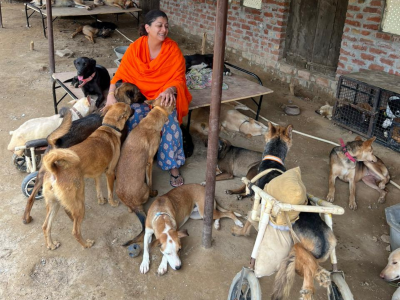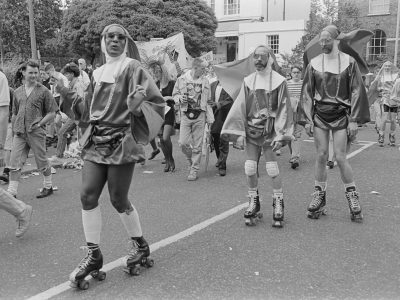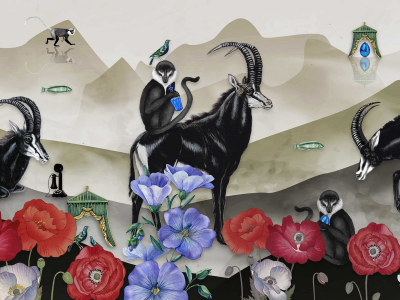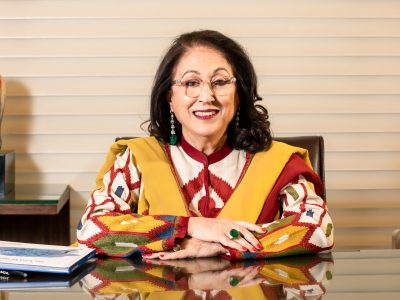Even as their music, culture and food are becoming a rage in the Capital, the Korean community prefers to stay out of the limelight
One of the countries that are interested in being a partner in the Indian growth story is South Korea. And there has been an increase in the economic and strategic cooperation between the two countries. There are as many as 4,000 Koreans staying in the NCR region, apart from tourists who come in larger numbers. Mostly concentrated in Gurugram, Noida and Greater Noida, they work in the corporate sector with MNCs.
They are focused towards their work, and are a closely-knit community. In most cases, they are open to interaction with the locals only to the extent their work demands. Pollution, population and traffic can get on their nerves, and they don’t venture out of their houses with children, unless its unavoidable. “I’d rather prefer to travel to south India than roam around in Delhi,” says 37-year-old finance executive, who wants to be identified as Jong. He has been living in Noida for nearly three years with his family of four.
A health freak, Jong loves reading books, he’s a frequenter to the JP Golf club in Greater Noida. A witty man who speaks good English—language is a substantial barrier in the case of most of the Koreans living in the city—adds with certain sarcasm, “I don’t see any method in the madness (referring to Delhi roads)s not yet.”
Though, there are some notable exceptions, and the growing interest in the economy is fast transforming into a cultural bonhomie. Kim Kum Pyoung is the director of the Korean Cultural Centre India (KCC). He came to Delhi eight years ago and is tirelessly working for greater cultural and social interaction between the two countries. KCC is an important venue where Koreans, otherwise not to be sighted, come and congregate, and also get to meet Indians.
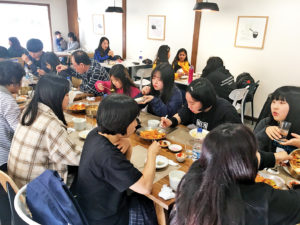
It serves authentic Korean cuisine, which is getting popular in the Capital. “Most of the Koreans are here for work. On weekdays, they are busy working in their offices—mostly in Gurugram.” Weekends are when they step out to enjoy some free time. “Golf course on weekends is where you’ll find many Koreans,” laughs Pyoung.
He agrees that Korean people are not very outgoing when it comes to interacting with the locals. It took him a couple of years to get comfortable with Delhi. “It’s not easy to adjust (for a Korean). Initially, they are suffering because of the cultural difference and the weather. It takes a lot of effort to understand and adopt Indian way of living,” he says, adding, “The experience is not very different from that of a person coming from a north eastern state to settle in Delhi.”
Pyoung accompanied the first lady of South Korea Kim Jung-sook when she visited Ayodhya in November last year. She offered tribute at the Queen Heo Memorial and participated in the ceremony for the upgrade and beautification of her memorial with KCC’s help. The legend goes that a local princess of Ayodhya, Suriratna, travelled to Korea and married King Kim Suro in 48AD and became Queen Heo Hwang-ok. Many Koreans trace their ancestry to the legendary princess with Indian origin.
KCC also encourage the popularisation of K-pop (Korean pop) music culture — quintessential South Korean phenomenon with global appeal — in India. Pink Box Events is organising a ‘Summer start tour’ of the Wild Kard — a popular K-pop band —in India. They are going to perform in Delhi next month.
Lucy Nelia is from Nagaland and works for Pink Box Events. She has been to South Korea many times in the past few years and points out the similarities in Naga and Korean cuisines—similar herbs are used, fermented food with strong ordure, rice beer—to mention a few. “It’s easy for us to mould to Korean culture,” she says. Recollecting her first trip to Korea in 2015, she adds, “It felt like I was visiting my grandmother’s home.”
Not just the K-pop, but Korean cuisines are becoming popular in India. They hardly use oil and even though the food is mostly boiled, it is rich in flavours. There are many restaurants that serve Korean cuisines in Greater Noida and Gurugram. But some café-cum-restaurants have come up in South Delhi also. One of the popular ones is in Safdarjung Enclave called Dongne which means ‘the town’. A spacious place with white walls and an open kitchen, it is a bright chirpy place to eat out. It also houses a nail-polish studio. It was opened six months ago by Yun Seongho, 32 years of age, polite, affable and very shy. “I have a phobia of being photographed,” he says and forces a smile.
Seongho had barely entered his twenties when he first came to India as a tourist. He was so fascinated with the country that he decided to work here. Unlike many of the Koreans residing in Delhi-NCR, he didn’t have a secure job with a multinational. He’s an entrepreneur who setup his own businesses. He popularised Korean cuisine in Noida and Gurgoan, before opening Dongne in Delhi. The reason for shifting to Delhi is to popularise Korean cuisines among the locals —the restaurant is patronised mostly by Indians—and not just to cater to Koreans and East Asians.
Seongho finds the people in Delhi have a “wider spectrum” and are open to trying new cuisines, unlike majority of the denizens of Noida and Greater Noida, who come across to him as a little isolationist, “This is my world and that’s your world.” He feels responsible to give the natives the experience of real Korean flavours. Like he sources Chinese cabbage for Korean cuisines from Otty where its cultivated by native farmers. His favourite Indian food is aloo ka paratha, and he also likes to eat live Octopus—a Korean delicacy. But the best-selling item in Dongne is Kimchi fried rice.
Many of the Koreans working in the corporate sector are not willing to talk about their stay in India by name. “Koreans are private people and will not be seen in public places,” Jong explains. In many encounters that he has had with locals in a bar or elsewhere in Gurugram, many don’t even know that a country called Korea exists. He is often mistaken for a Manipuri, Assamese, Chinese or Japanese. “Koreans are not seen on Delhi street because people think we are Chinese,” Jong says with a laugh.


